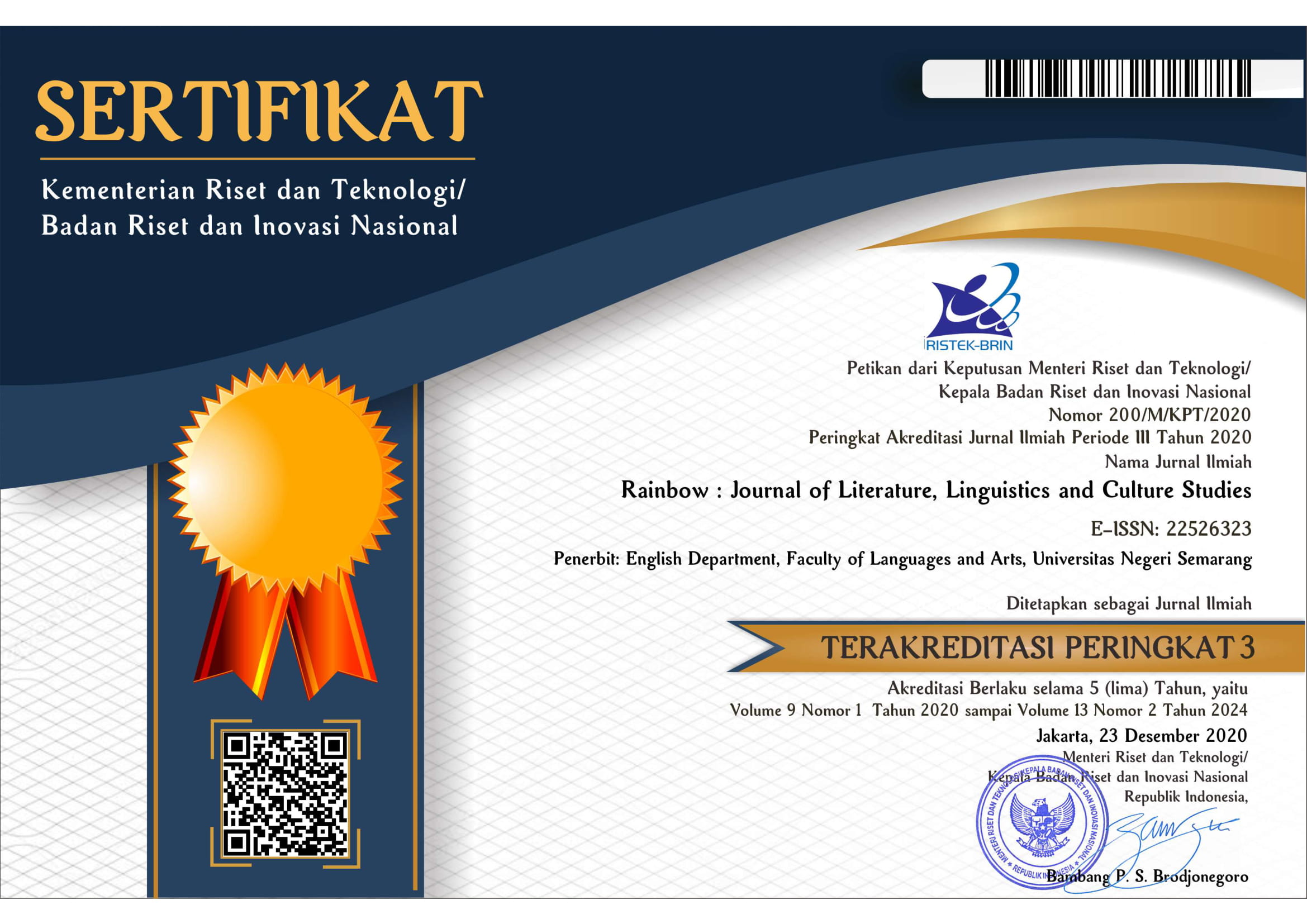THE SIGNIFICANCE OF MEMORY IN SOLVING INDIVIDUAL’S IDENTITY CRISIS DEPICTED IN JAMES DASHNER’S THE MAZE RUNNER
Abstract
Identity crisis is a psychological condition that happened to an individual because of the confusion of roles someone experienced in the society. This study was conducted to analyze the significance of memory in solving individual's identity crisis depicted in James Dashner's The Maze Runner. The purposes of this study are to describe how identity crisis depicted in the novel and to explain what factors cause an identity crisis. This study was done using a descriptive qualitative method and using Erikson's psychosocial theory to explore the identity crisis of the main character in the form of words. The object of the study was the novel The Maze Runner and this study focused on Thomas as the main character. List of an observational sheet was used as the research instrument and the data was taken through library research. The analysis was conducted by interpreting Thomas’ utterances and actions using Erikson’ stages of development’s theory to describe Thomas’ identity crisis. The study results showed that the identity crisis Thomas’ experienced was the results of the changing environmental condition and Thomas’ missing memories that made him unable to make new sets of values needed to form an identity. In order to solve his identity crisis, Thomas had to remember old memories he had forgotten in order to create new sets of values.







